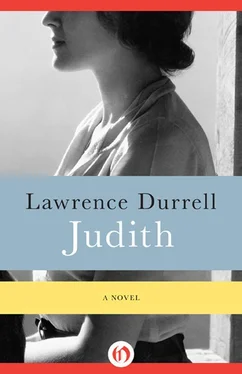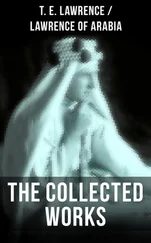“No,” said Ali. “These are oil secrets. Nothing to do with the war. I would not mention them if they were. I would not ask you to sell your country, Donner.”
“I’m glad to hear it,” said Donner piously.
“Certainly not,” repeated Ali, spreading his hands. “I represent some very large oil interests, that is all. Set your mind at rest.”
“Well, what is it then?” said Donner with a touch of impatience. “I must say you’ve come to me rather late in the day.”
“I know. You are being posted to Syria.”
“You seem to know everything.”
“Not everything. That is why I am here. I want some general information about where the girl is; and then, if you can find a way of supplementing it and finding out if she has any such papers… After all, as a policeman you could raid the place and impound what you found; all we would ask is a photographic copy. You see my line of reasoning.”
Donner laughed morosely. “I’ve raided Ras Shamir more than once,” he said. “If you want the papers to disappear there is no better way. They’re cunning. We never find anything. No, that’s no way to start.”
“So she is at Ras Shamir?”
“So I believe.”
“Is there any way you could go up there and… find out with a little more certainty?”
“I could try, but there’s precious little time left.”
“But the money is good, Donner.”
“Yes, the money is good,” said Donner soberly and sucked his teeth. He stood up and thought deeply for a moment.
One day Professor Liebling materialized before Judith’s eyes at the lunch table. He looked like a benign little silver gnome in his shabby dark clothes covered with cigar ash. He carried a mackintosh over his arm and a long leather briefcase. His curly hair was quite white; he looked more like a musician than a physicist. He sat himself down with a self-deprecating smile and said: “As an old professional friend and colleague of your father’s, I am going to call you Judith.”
Judith smiled into the gentle world-weary eyes and said, “I believe I must have seen you, but I don’t remember.”
“Time is very wicked,” said the Professor. “You must have seen an earnest middle-aged man with a beard. And I must have caught a glimpse of you. But… I must be truthful and not gallant. I do not remember.”
They talked for a little while as the meal progressed; Peterson and the little woman doctor were at a table close beside them. “Now Pete I do remember,” said the Professor. “We are old friends.”
It was at the end of lunch that he asked permission to light one of his tall cigars and to talk shop. Judith made a characteristic little gesture of acceptance and took a cigarette from a battered packet in the pocket of his coat.
“I know what you are going to ask me,” she said. “And I’m afraid I’m going to disappoint you. By bad luck I was not working on this device of my father’s. I was away lecturing in Oxford and Princeton for some time while he was busy on it. I know what it is — what sort of thing it is — because he talked to me about it. It was a new theory of propulsion based on an electro-magnetic field. But I didn’t work on it. His assistant, a man called Kalman, had all the data.”
“I know,” said Professor Liebling quietly.
“Well, it was pretty far advanced because my father actually published a paper on it — and he never did that unless he had the whole thing finished. In fact, they were about to go into prototype and build this new kind of turbine when… he died.”
“And a new world was born.”
“A new world was born. When I got back, Kalman had disappeared with all the materials, and all I knew about it was what my father himself had told me, early on in the experiments. Oh dear!”
“Why do you say ‘Oh dear!’?”
“I am sorry not to be of more use. And yet, in a way, it was perhaps lucky. The Nazis had wind of this and were most anxious to find out about it. It was impossible to convince them that I knew nothing about it. They sent me to a camp to punish me and then let me out, thinking I knew where the papers were hidden and would lead them to them.”
“Everyone thought that — everyone feared that.”
“Alas. But luckily I was kidnapped and managed to escape. But as for the papers… I have never seen them!”
Professor Liebling exhaled a violet stream of smoke and considered her gravely for a long moment. Judith stubbed out her cigarette and pondered before continuing. “As far as I remember from what my father said, he came upon some equations by Gauss in the Collected Papers. They had been completely discarded and set aside. He saw a connection with other work he was doing on electro-magnetic fields and began to turn them to use. The idea of this thing, device, grew out of his studies. But just what the data were I cannot say.”
“Could you identify the equations again?”
“I might. Why do you ask?”
Professor Liebling sighed and rubbed his chin.
“Here’s a strange part of the story. Kalman’s papers (I suppose they are your father’s) actually did get out here to Palestine, though we have never heard what happened to him. As a matter of fact, I have brought them with me today. We can’t make very much of them; the drawings don’t match the schema. I have had two of our most brilliant young men working on them. I was wondering if you would care to have a look and see whether you can unravel the whole thing. There may be whole chunks missing from the materials. It looks like a new sort of turbine.”
“It was. Oil, he had in mind.”
“Oil is what we have in mind,” said the Professor. “It is also what the Nazis had in mind; they had plans for the Rumanian oil-fields which would have been helped by this idea. By the same token, the British, Americans and Arabs would all be profoundly interested. Do you understand? Meanwhile, the data we have all seems pure gibberish. I came here to ask you if you would work a while on it and try and reduce it to some sort of shape. Look.”
Judith watched him zip back the briefcase and extract a couple of stout folders. He put them down and said: “There. Have a riffle.” She turned the papers over slowly, and read them like a musician thoughtfully reading a score. Then she sighed. “I can’t do it all at once of course. I should need time to really study them.”
“You have all the time in the world. Months if necessary. I only wanted to ask you for your help. In fact, you could come up to Jerusalem if you wished, and work there at the Institute. Why not do that?”
She was silent for a moment. “I mean,” said the Professor, “there at least you have a library and reference works to look up, but perhaps there is a special reason? Perhaps…
“May I be frank?” said Judith at last. “I am still rather shaken and upset by the last few months — indeed longer than that.” She smiled. “Look, Professor.” She held out a hand in which a newly-lit cigarette smoked. It trembled like a leaf. Suddenly the Professor caught it in his own small hand and kissed it. “Of course,” he said, “of course.”
“I would like a little time to collect myself; of course I will look over these materials in my spare time, and tell you if there is anything that can be done with them — and perhaps you could send me a few books if I gave you a list? Or would that pose problems?”
“Of course not. And I perfectly understand.”
“I like it here so much — what I have seen of it — it is really most interesting as a community venture, and somewhat unlike the last community in which I found myself!”
“Yes, the kibbutz is an odd form of voluntary organization. We have every type, you know, collective, cooperative and so on, and then when you think that there are seventy nations babbling on this strip of land you get quite dazed! Yes, I should stay if I were you, and work here. Take your time. Besides, things are not going to be very pleasant up there.”
Читать дальше












